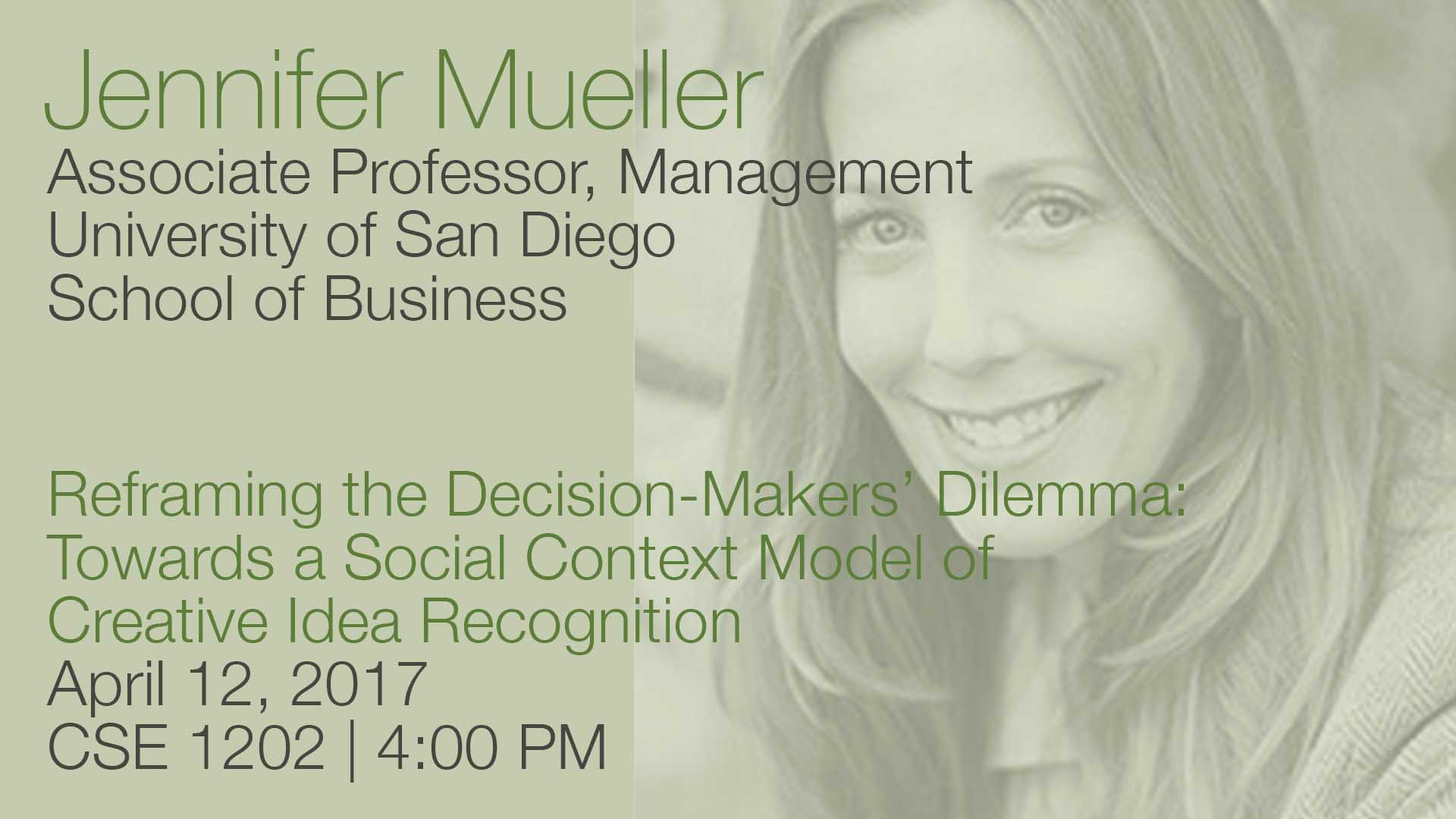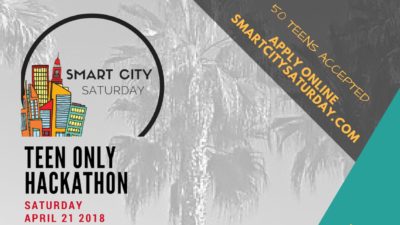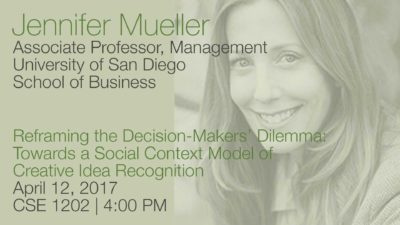
Abstract
Reframing the Decision-Makers’ Dilemma
Can decision-maker roles-roles with a responsibility to allocate resources towards ideas-shape which ideas people in those roles view as creative? Prior theory suggests that expertise should influence creativity assessments, yet examples abound of experts in different roles disagreeing about whether the same idea is creative. We build and test a social context model of creative idea recognition to show how decision-maker roles can shift creativity assessments. In an experimental study, we show that relative to non-decision-making roles, decision-making roles inculcate an economic mindset and so lead to downgrading otherwise creative ideas with cues of low social approval. A quasi-experimental study triangulates and extends this finding showing that organizational decision-making roles can habitually evoke an economic mindset that shapes creativity assessments. In both studies, decision-maker role, economic mindset, and social approval levels were unrelated to idea usefulness ratings. By integrating work on organizational roles, economic mindsets, and implicit theories of creative ideas, we provide a broadly applicable theoretical framework to describe how social context shapes creativity assessments. This work has important implications for the creativity and innovation literature and suggests a new interpretation of the longstanding puzzle of why organizations desire but often reject creative ideas.
Wednesday, April 12, 2017
CSE 1202


